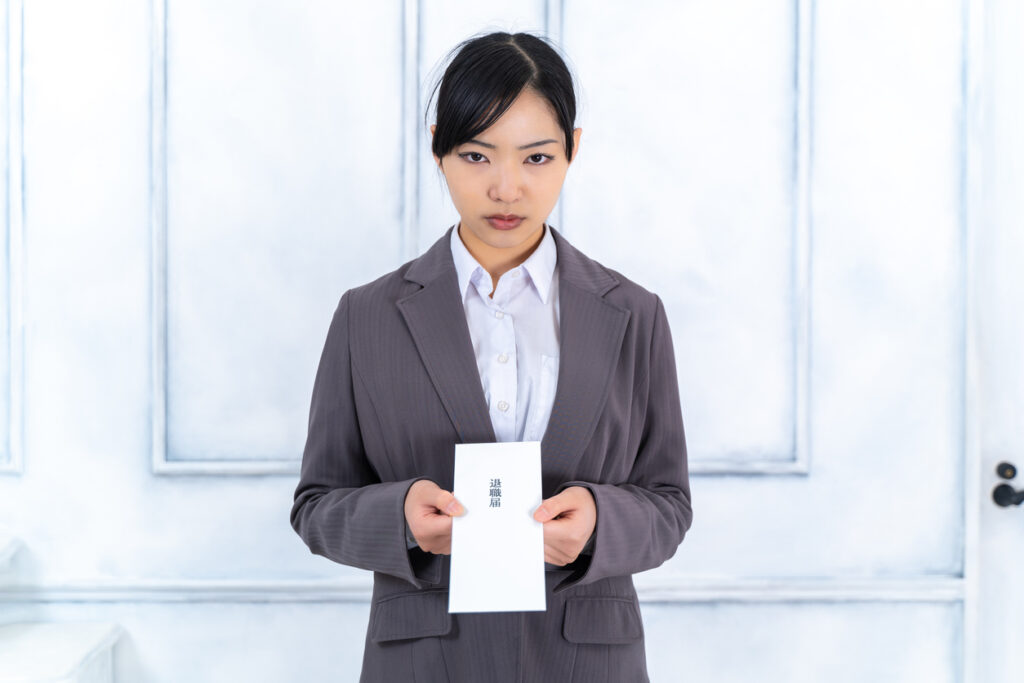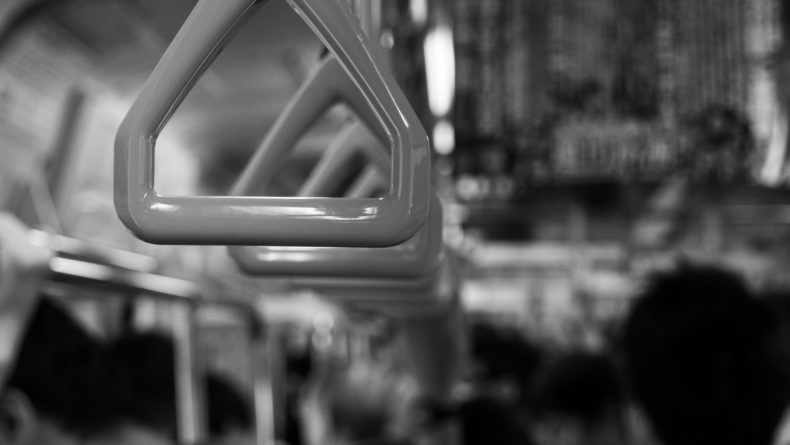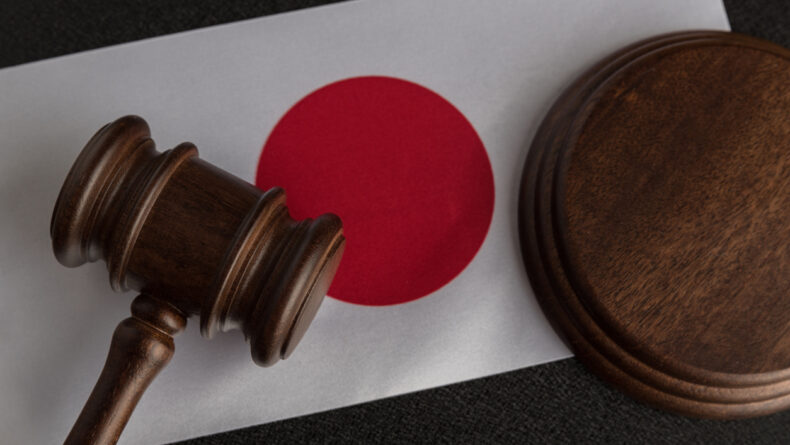10 Types of Harassment in Japan
Identifying Different Forms of Coercion in Japan and How to Deal with Them
From power struggles to peer pressure, here are 10 types of intimidation you’ll encounter in Japan—and some ways to turn the tables.
A few years ago, after seemingly being pigeonholed as an English teacher job after job, I was excited to finally have my first non-teaching office position in Japan. My excitement waned, however, with each red flag I noticed. I was repeatedly held late at the office, alone with the much older male CEO. My coworkers, on the other hand, were given permission to leave. I was pressured several times into drinking alone with the CEO, while other coworkers never were. And finally, I was inappropriately touched after that CEO had perhaps a few too many drinks. Would this be considered harassment in Japan?
What is harassment?
 © Photo by iStock: baona
© Photo by iStock: baonaThough the red flags I experienced may seem obvious, I refrained from identifying any of these actions as harassment (often shortened to hara in Japanese) until much later. Though the legal definition varies by country, harassment is typically any unwanted, offensive or threatening behavior that overpowers the victim.
While harassment can commonly happen at work, like in my experience, harassment in Japan isn’t always workplace-specific, sometimes occurring between family, friends and even strangers.
The Many Kinds of “Hara”
While harassment unfortunately exists around the world, there are dozens of types of hara identified in Japanese culture. Here are 10 kinds you may come across in Japan:
- パワハラ Pawahara (Power Harassment)
- セクハラ Sekuhara (Sexual Harassment)
- ジェンハラ Jenhara (Gender Harassment)
- モラハラ Morahara (Moral Harassment)
- アルハラ Aruhara (Alcohol Harassment)
- マタハラ Matahara (Maternity Harassment)
- ヤメハラ Yamehara (Quitting Harassment)
- テクハラ Tekuhara (Technology Harassment)
- ロジハラ Rojihara (Logical Harassment)
- ハラハラ Harahara (Harassment Harassment)
1. パワハラ Pawahara (Power Harassment)
 © Photo by iStock: DragonImages
© Photo by iStock: DragonImagesPawahara is a type of harassment that may occur at work. In this type of harassment, a boss or senior employee causes mental, emotional or physical suffering to a subordinate. The boss’s position of power is used as justification to belittle, control or lash out at their employee. Legally, however, this form of harassment is prohibited.
2. セクハラ Sekuhara (Sexual Harassment)
 © Photo by iStock: herstockart
© Photo by iStock: herstockartSexual harassment involves any unwanted behavior or gesture that can be considered sexual in nature. It can happen at work, but it can also occur elsewhere too. For example, in Japan, train chikan (groping) is a well-known issue, creating the need for women-only train cars (though women aren’t the only victims). Sekuhara may also lead to セカハラ (sekahara; secondary harassment), where victims are blamed or criticized for reporting sexual harassment.
3. ジェンハラ Jenhara (Gender Harassment)
 © Photo by iStock: Liudmila Chernetska
© Photo by iStock: Liudmila ChernetskaGender harassment involves being harassed or pressured into conforming to gender roles and shaming those who don’t. In Japan, women being expected to cook for their husbands or prepare tea in the workplace are examples of jenhara.
4. モラハラ Morahara (Moral Harassment)
 © Photo by iStock: Wavebreakmedia
© Photo by iStock: WavebreakmediaThis type of harassment relies on psychological abuse, including gossiping and intentionally excluding or scolding a coworker or acquaintance. Unlike power harassment, moral harassment can happen between peers or colleagues of similar seniority.
5. アルハラ Aruhara (Alcohol Harassment)
 © Photo by iStock: davidf
© Photo by iStock: davidfAlcohol harassment is where one is pressured to drink, often excessively, and even to the point of being dangerously intoxicated. In this type of harassment, the drinker doesn’t feel that they have the option to not drink. Similarly, an environment where only alcoholic drinks are served may also be considered aruhara.
6. マタハラ Matahara (Maternity Harassment)
 © Photo by iStock: PeopleImages
© Photo by iStock: PeopleImagesAs you can probably guess by its name, maternity harassment is discrimination or unfair treatment towards mothers and women expecting children. In a country known for its low birth rate, women are often encouraged to either work or have children—but not both. Matahara may include discouraging women from taking leave after giving birth, failing to promote women in the workplace because they have (or may in the future have) a child, or even causing physical harm to a pregnant woman. パタハラ (Patahara; Paternity Harassment), where fathers are penalized for applying for or using childcare leave or other childcare systems, is also still very prevalent in Japan.
7. ヤメハラ Yamehara (Quitting Harassment)
 © Photo by iStock: Promo_Link
© Photo by iStock: Promo_LinkWhether you’ve dealt with harassment in your job or just feel that it’s time to make a career change, you may eventually come to the decision to quit a job in Japan. But if your company punishes you for doing so, that’s yamehara, from the word yameru (to quit) in Japanese. This type of harassment might include guilt-tripping you into staying longer, giving you more troublesome work leading up to your last day, or shaming you for leaving the company. This type of harassment is so common that there are companies available that provide the service of quitting your job for you.
8. テクハラ Tekuhara (Technology Harassment)
 © Photo by iStock: tuaindeed
© Photo by iStock: tuaindeedTekuhara or techhara is harassment related to IT technology. With Japan’s aging population, more and more older people and employees are being harassed for being unfamiliar with IT devices such as computers and smartphones. Harassers will deliberately use a lot of technical jargon when speaking to confuse and mock victims. In other cases, they may intentionally force people with low IT skills to do jobs that require more advanced skills.
9. ロジハラ Rojihara (Logical Harassment)
 © Photo by iStock: sabthai
© Photo by iStock: sabthaiRojihara or logihara harassers use logic as if they’re making a rational point. However, their one-sided point or insistence is used to make the other person uncomfortable and gaslit (also known as being manipulated into doubting your own perceptions, experiences or understanding of events). You might experience this when making an innocent mistake at work: The harasser will not listen to your side of the story and instead will unilaterally decide, “The mistake was caused by _____. In other words, it’s your fault.” Dismissing someone’s actions or comments by saying, “You’re wrong” or “What you’re saying doesn’t make sense” without properly hearing them out can also be considered rojihara.
10. ハラハラ Harahara (Harassment Harassment)
 © Photo by iStock: RRice1981
© Photo by iStock: RRice1981Harahara is the reverse of power harassment, as it is often perpetrated by subordinates against superiors. It’s a form of harassment that takes advantage of the systems companies put in place to combat harassment. A simple example of this is accusing a boss of harassment over a minor everyday situation that wouldn’t technically be harassment. This could be things like your boss telling you off for a mistake you made at work and immediately accusing them of power harassment.
Harassment and Japanese Culture
 © Photo by iStock: itakayuki
© Photo by iStock: itakayukiThough there are many kinds of hara in Japan, many of them are labeled as such because of the awareness that these behaviors aren’t acceptable. Still, there are some cultural dynamics and patterns that make certain types of harassment prevalent in Japan.
For one thing, Japan is widely regarded as a homogeneous society where conformity is key. The common saying, “deru kugi wa utareru,” or, “The nail that sticks out gets hammered down,” is an accurate summary of how to behave in Japan: if you stick out—or speak up—you’ll be ridiculed for doing so.
This can make it hard for people to feel comfortable coming forward after experiencing harassment. Not only this, but some types of harassment thrive on this conformity. For example, taking maternity leave is considered a betrayal to the rest of the team continuing to work in the office, or failing to follow traditional gender roles may be treated as almost irresponsibly unusual for going against society’s expectations.
Aside from conformity, Japan’s hierarchical relationships can contribute to harassment like pawahara and make it harder to detect. And for those experiencing harassment from an elder or superior, they may struggle to resist due to the power dynamic ingrained in the relationship.
How To Deal With Harassment in Japan
 © Photo by iStock: Liubomyr Vorona
© Photo by iStock: Liubomyr VoronaNo matter if you experienced harassment in the workplace or elsewhere, first seek someone trustworthy to talk to. At work, this could be a trusted colleague or someone from your human resources department. You may also want to seek help from someone outside of the situation. This might be a station attendant, a police officer at a nearby koban, or in the case of workplace harassment, an organization such as Hello Work.
If your mental health has taken a hit after experiencing harassment, you may also want to contact TELL for free chat and phone support.
Above all else, know that you’re not alone and you don’t deserve to be harassed. In my office job, I initially convinced myself I was being paranoid and overreacting. For you, listen to your gut, be aware of what constitutes harassment and remember to be your own advocate.
Have you experienced any harassment in Japan before? If you’re comfortable doing so, let us know about it in the comments!
This article has been extended and updated with the latest information for 2024.












Thank you 🙏. It helps me a lot.
Yes , I was been harassed at my kid’s preschool by one of his teacher and other Japanese guardians . And another thing is that if you speak out about the harassment they will be overpower on you by grouping together.